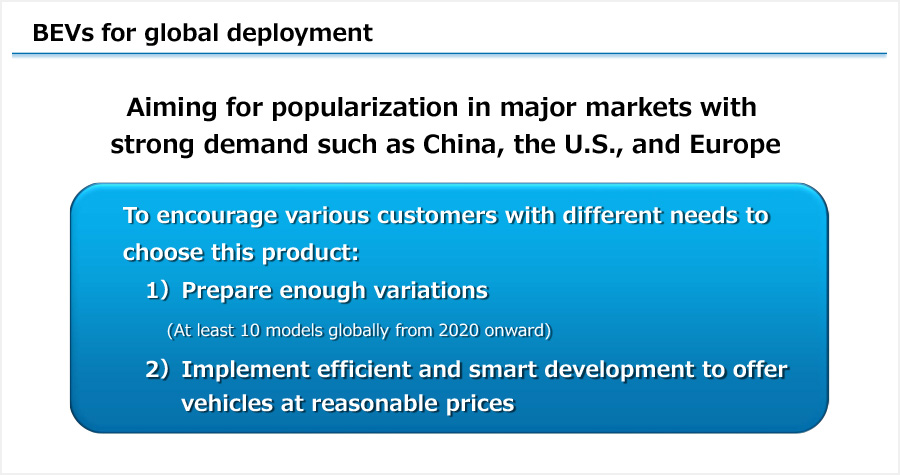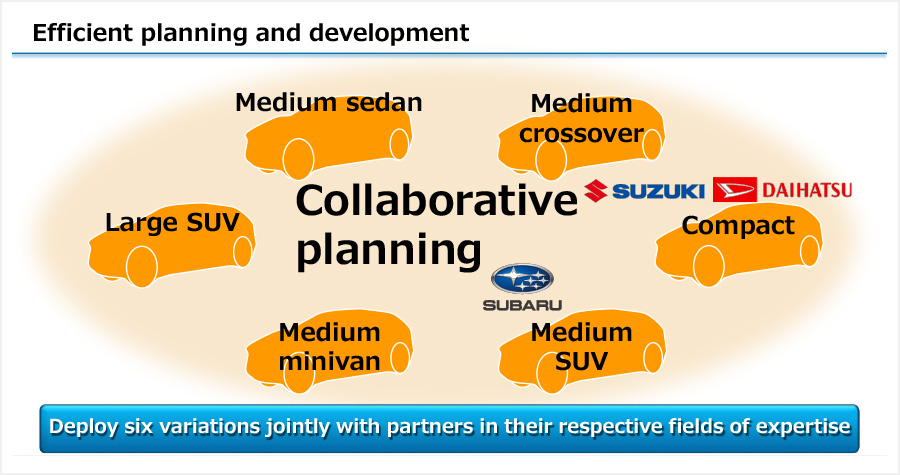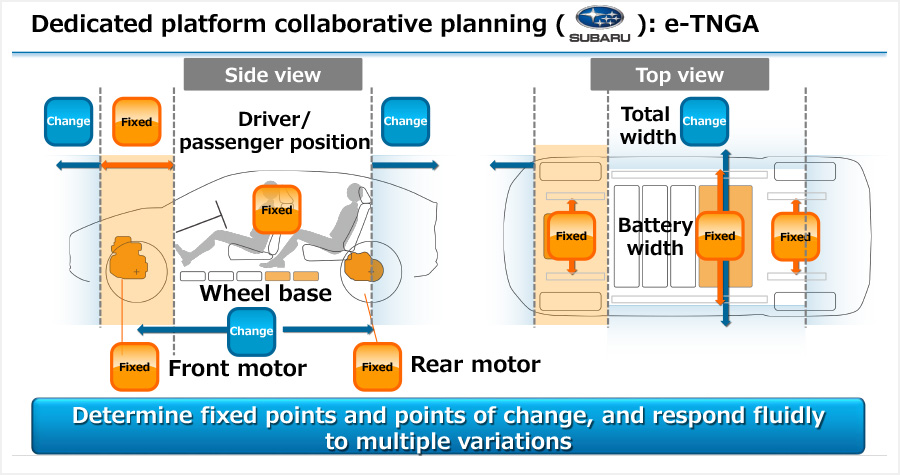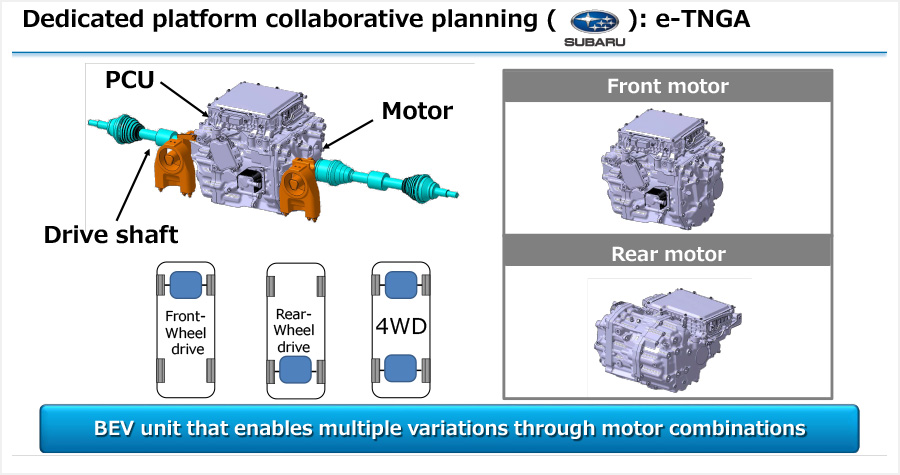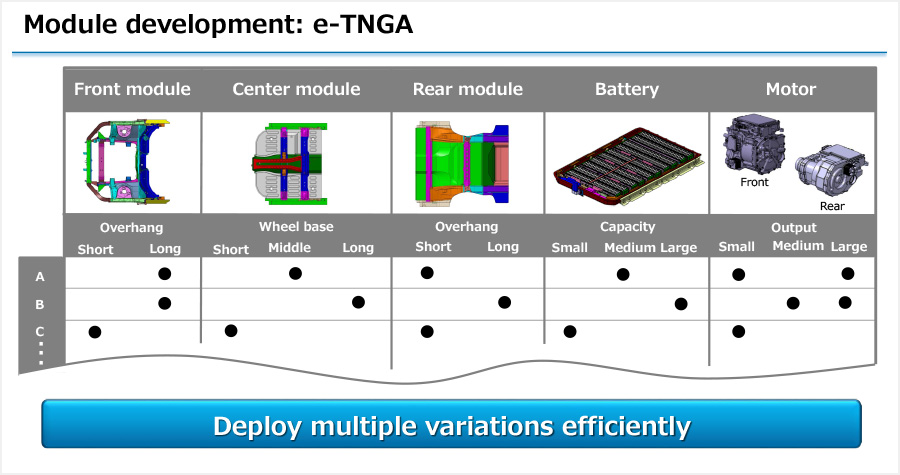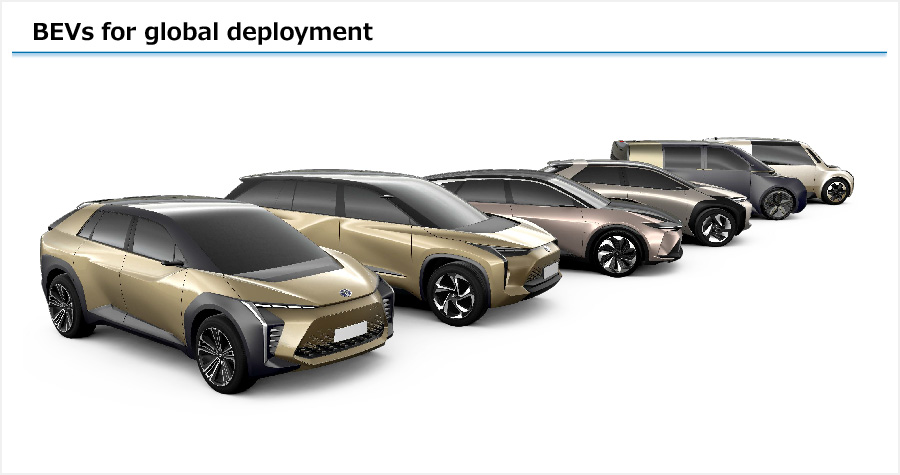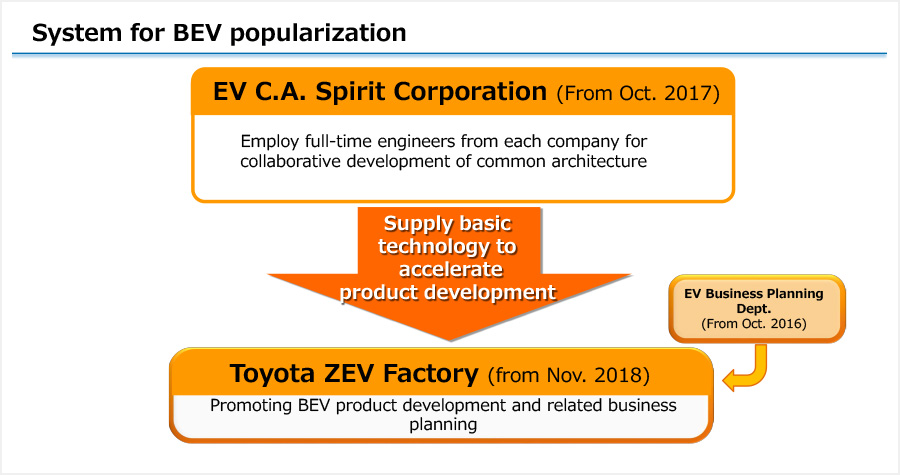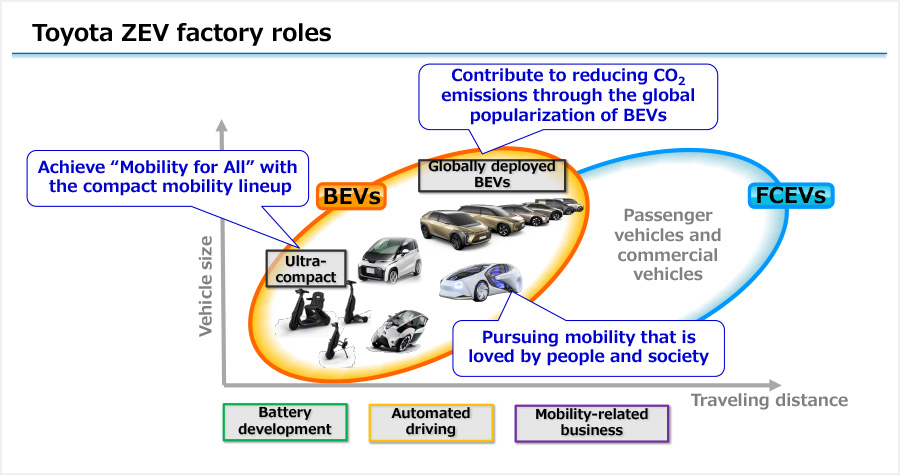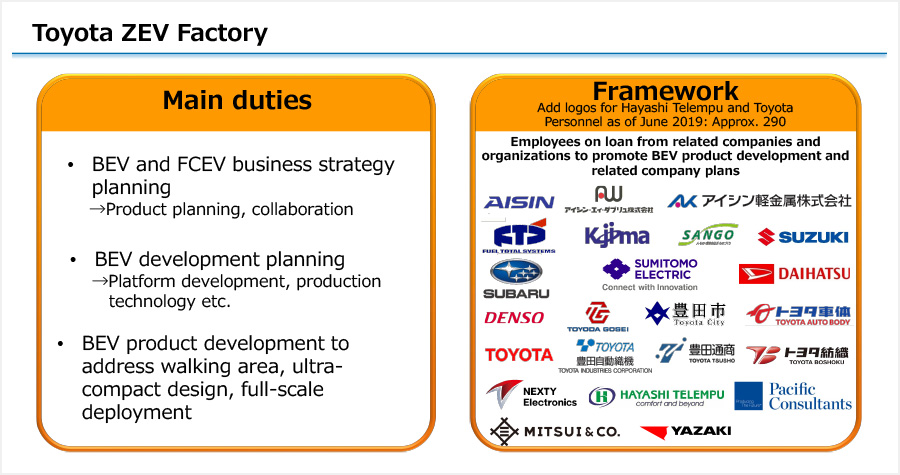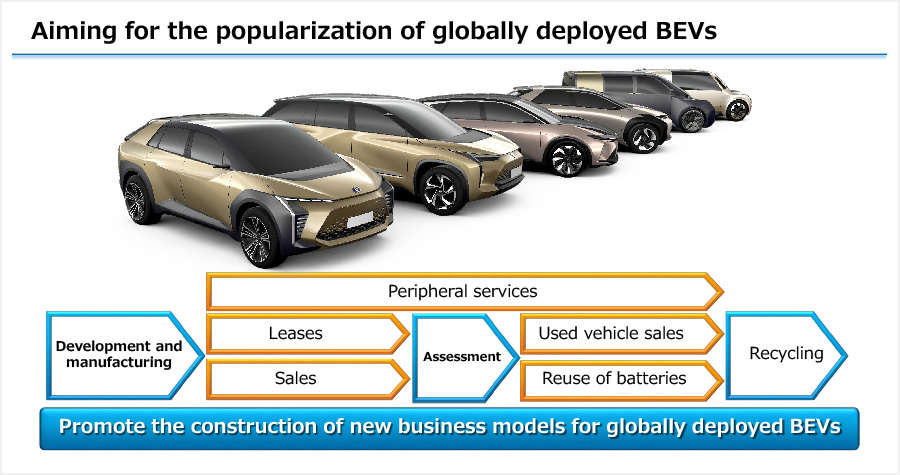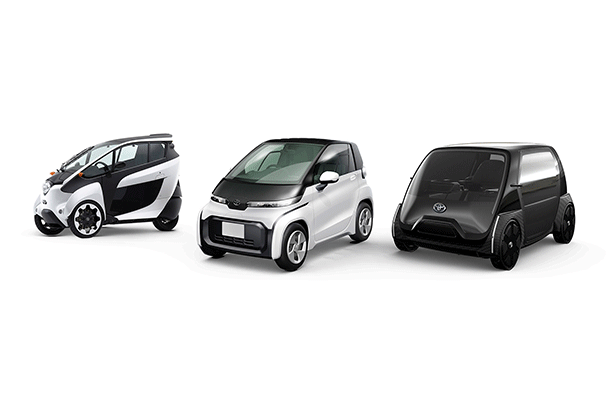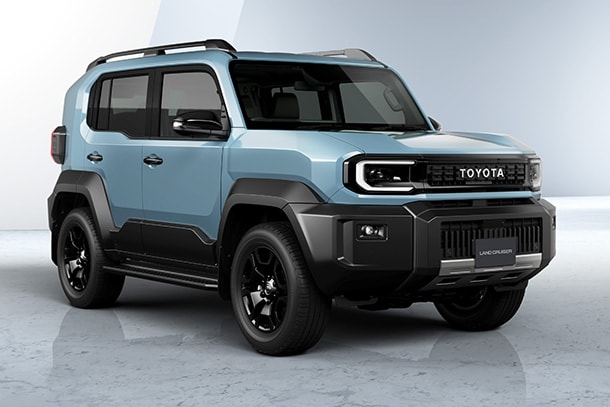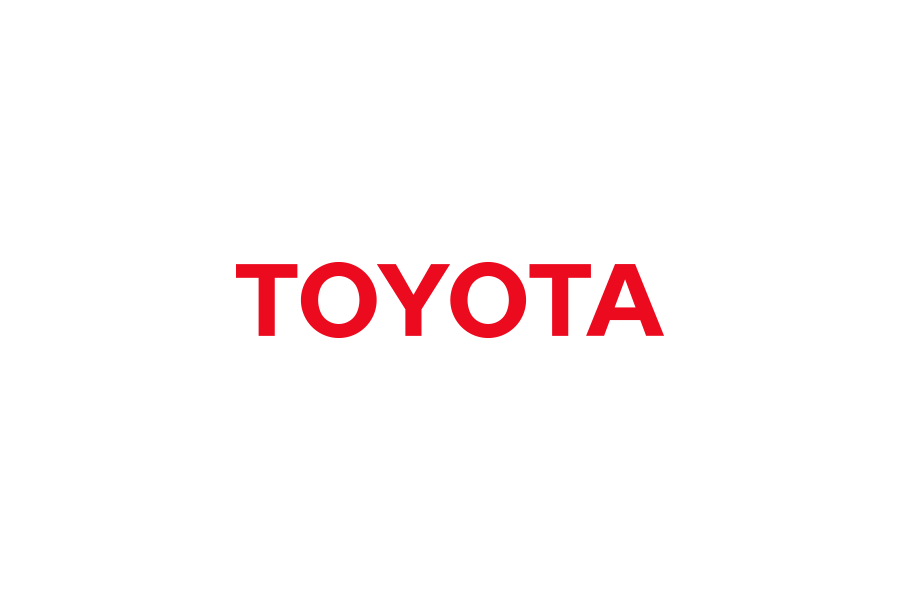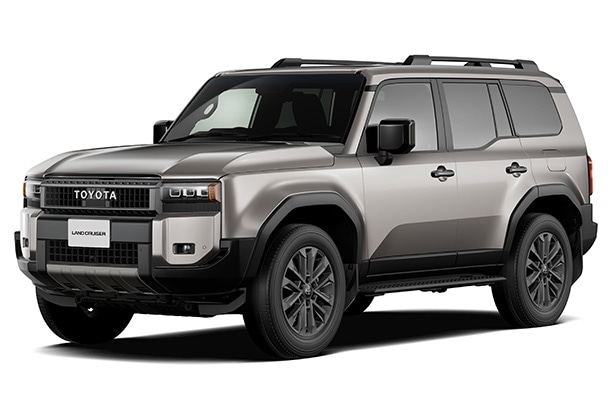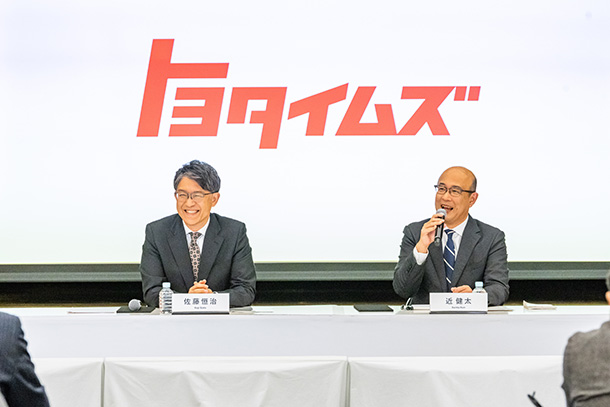Jun. 07, 2019
2) BEVs for global deployment
For markets with high demand for BEVs, such as China, the United States, and Europe, Toyota is conducting development toward the popularization of BEVs.
To respond to customers' needs and to encourage many customers to choose its BEVs, such development is being conducted in an efficient manner that will allow Toyota to offer a sufficient number of variations of BEVs at affordable prices.
Specifically, Toyota is jointly planning and developing multiple models together with partner companies that specialize in certain areas.
After having sorted customers' needs, Toyota is currently considering six variations in BEV size and style.
It will jointly plan and develop a midsize BEV SUV with Subaru, and it will jointly plan and develop a compact BEV with Suzuki and Daihatsu.
This shows Toyota's approach to a BEV-dedicated platform, which it is now planning and developing with Subaru.
Within Toyota, this platform is referred to as the "e-TNGA", because Toyota considers it to be one form of its TNGA, or Toyota New Global Architecture.
In e-TNGA, the position of the front and rear electric motors, the layout under the hood, the driver position relative to the front wheels, the width of the battery, and other elements are fixed, while the wheelbase, number of batteries installed, overhangs, and other elements can be changed.
Having fixed elements and changeable elements enables multiple variations.
Toyota's joint planning and development with Subaru also includes that for major, dedicated BEV components, such as electric motors and PCUs.
Combining several types of electric motors will allow Toyota to flexibly respond to drive-system and driving-performance needs.
By combining multiple modules, such as those for the front, center, and rear of a vehicle, and multiple major components, various variations of vehicles can be efficiently rolled out.
Using this approach, Toyota will be able to create wide-ranging vehicle variations.
The planning and development of the BEVs introduced here is being conducted by the Toyota ZEV Factory, which is a Toyota internal organization that specializes in product planning and business planning for zero-emission vehicles.
In its BEV development, Toyota has so far established EV C.A. Spirit, and, in collaboration with many partner companies, from which dedicated engineers are being sent on loan, it is advancing the development of common base technologies.
The Toyota ZEV Factory will engage in the development of BEVs, from those that represent forms of ultra-compact mobility to those that will be globally rolled out.
It will also conduct planning for FCEVs.
The Toyota ZEV Factory is receiving the cooperation of numerous companies and organizations, and it is advancing development together with them, with some companies engaged in joint development, some companies assuming the task of providing certain major components and parts, and so on.
And, of course, Toyota is constructing a business model for the global rollout and popularization of BEVs.
